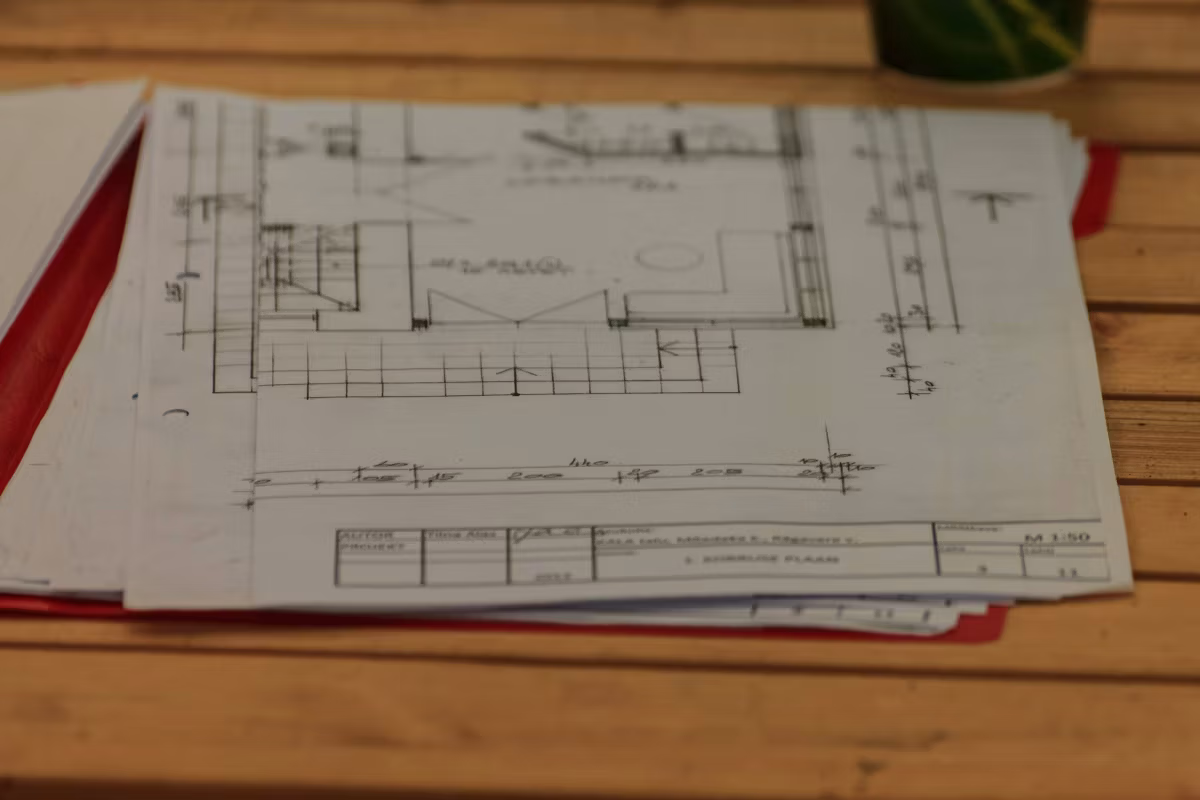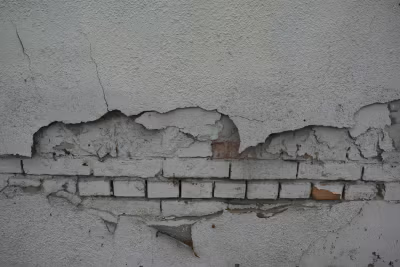Construction Contract Disputes in Colorado

A remodel should end in pride, not regret. You planned the budget, approved the design, and opened your home to professionals who promised licensed, permitted work. Instead, the project stalled, costs crept, workmanship fell short, and the contractor began demanding more money—or walked off the job entirely.
Now you're left with torn-up rooms, code issues, and a stack of invoices you don't trust. At Hollington Law Firm, we represent Colorado homeowners in remodeling disputes of every kind: unfinished or defective work, change-order fights, permit and inspection failures, mechanic's liens, and insurance or code complications that surface after the damage is done.
Our goal is straightforward—stabilize the project, protect your home and title, and resolve the dispute on terms that are fair, lawful, and rooted in what it will actually take to make the work safe and complete.
What Went Wrong—and Why It Matters
Remodeling disputes rarely have a single cause. Most begin with expectations that were never written down, estimates that quietly balloon into demands, or shortcuts that only become obvious when an inspector fails the work or leaks appear after the first heavy rain.
In Colorado, quality and legality matter as much as aesthetics. If work was performed without required permits or by an unlicensed contractor, you may be facing more than inconvenience. Unpermitted or sub-standard work can:
Block refinancing attempts
Trigger red tags from building departments
Lead to costly tear-outs to bring the home back to code
When a project goes sideways, we look beyond the surface to understand scope, sequencing, and responsibility—what was promised, what was authorized, and what actually occurred on site.
Contracts, Change Orders, and the Paper Trail
Every remodeling case turns on the paperwork—or the gaps in it. A clear written agreement should identify:
The scope of work
The price structure
Progress billing or milestones
Who is responsible for permits and inspections
Change orders should be documented properly and signed by both sides before extra work begins. When contractors try to collect for "extras" that were never approved, or for fixes to their own mistakes, Colorado contract law allows owners to push back.
We reconstruct the contract from emails, texts, proposals, and invoices, and we compare those records to what was installed. Where the paperwork is silent, we use expert inspection, building-code requirements, and customary practice to determine what was truly part of the bargain.
Permits, Licensing, and Code Compliance
Home improvement is not "ask forgiveness later." Many remodels require building, mechanical, electrical, or plumbing permits, and those permits must be obtained by properly licensed professionals.
If your project skipped permits or failed inspections, that isn't a mere technicality. It is a public-safety issue with legal consequences. Permit-shifting clauses that try to force owners to pull permits for contractor-controlled work are often unenforceable in practice.
When work is unpermitted or performed by unlicensed individuals, it can undermine the contractor's ability to collect and fuel powerful defenses to payment claims. Learn more about whether you can sue a contractor for not pulling permits.
We work with local building departments, gather inspection records, and coordinate corrective scopes so the finished work is lawful and safe—not just cosmetically improved.
Defective or Incomplete Work
Not all poor outcomes are subjective. Visible clues frequently signal deeper defects:
Uneven floors
Cracked tile
Out-of-level installations
Over-cut framing
Missing moisture barriers
Improperly flashed windows
We engage qualified experts to evaluate workmanship against manufacturer instructions and code standards and to document what it will cost to repair. That evidence supports claims for breach of contract and negligence and provides a practical roadmap to completion.
If a contractor abandons the job or refuses to fix obvious mistakes, we coordinate replacement bids and secure the site to prevent further damage while your claims are preserved.
Payment Disputes and Mechanic's Liens
Payment conflicts often follow quality conflicts. Contractors may demand final payment despite unfinished or defective work, or they may inflate invoices with unauthorized "extras."
In some cases, a subcontractor files a mechanic's lien because the general contractor failed to pay them, even though you paid the general in full. Colorado's mechanic's lien statute provides strict procedures and deadlines for claimants, and many liens are invalid because the claimant missed notice, filing, or enforcement requirements.
Homeowner Protections
Homeowners also benefit from statutory protections, including:
A full-payment defense for single-family homes
Remedies against excessive or fraudulent liens
When a lien is recorded, we move quickly to challenge it, bond around it to clear title for a sale or refinance, and negotiate a fair outcome grounded in documented scope and code-compliant repair. Learn more about how to remove a mechanics' lien in Colorado.
Misused Payments and the Construction Trust Fund
Colorado's Construction Trust Fund statute requires contractors to hold owner payments in trust for labor and materials on your project. When a contractor diverts those funds to other jobs or personal expenses, they expose themselves to civil-theft liability and fee shifting.
This protection is essential for remodels, where owners are frequently asked for large deposits and progress draws. If you paid as agreed and subs are still unpaid, the problem is not yours to solve by paying twice.
We trace funds, match them to invoices and releases, and pursue responsible parties to recover misused money and unwind lien pressure on your home.
Insurance, Water, and Mold After a Bad Remodel
Defective remodels often create secondary losses:
Leaks behind new tile
Hidden moisture in walls
Buckled flooring after plumbing work
Electrical issues that cause heat damage
Insurers sometimes deny or delay claims by pointing to "workmanship" exclusions, even when the policy should cover the resulting water or mold damage. We document the loss with photos, testing, and expert reports, separate defective workmanship from covered damage, and push for full, code-compliant repair.
If the carrier slow-walks or underpays, we pursue your rights under Colorado's claim-handling rules and bad-faith remedies. Learn more about navigating insurance coverage for construction defect claims.
How We Build and Resolve Your Case
Our approach is disciplined and practical. We:
Stabilize the site
Gather the full contract record
Capture the physical evidence before repairs obscure it
Obtain permit histories, inspection notes, and manufacturer specifications
Commission expert scopes that identify what must be removed, what can be salvaged, and what the true cost of completion will be to code
With that record in hand, we engage the contractor and their carrier, set out the defects and contractual breaches, and present a clean demand that ties dollars to documented repair.
Many cases resolve at this stage. If not, we file suit and prosecute claims for breach of contract, negligence, and statutory violations, while defending against inflated invoices and improper liens.
Where Colorado Law Fits In
Colorado's Construction Defect Action Reform Act (CDARA) and the Notice of Claim process shape how and when certain construction claims proceed. The Homeowner Protection Act limits waiver clauses that would otherwise strip owners of remedies.
The mechanic's lien statutes control notice, recording, and foreclosure. The Construction Trust Fund statute protects owners from double payment and punishes diversion of funds.
We apply these frameworks daily, not as abstractions, but as practical tools that move your project toward lawful completion and a fair financial outcome.
When to Involve Counsel
The best time to call is when warning signs first appear:
Sudden "time and materials" demands that deviate from a fixed price
Pressure to pay for change orders that were never approved
A surprise request that you, the owner, pull permits for contractor-controlled work
Repeated inspection failures
Threats of a lien
Early involvement preserves defenses, expands options to bond around a lien or secure replacement bids, and often prevents a temporary dispute from becoming a lawsuit.
If the contractor has already recorded a lien or abandoned the job, prompt legal action can protect your title and reduce the cost of getting the work finished correctly.
Why Homeowners Choose Hollington Law Firm
We focus our practice on construction and remodeling disputes for Colorado homeowners. That focus matters. We know:
How projects should be documented
Who should be pulling permits
What code requires
How to translate a messy jobsite into a clean legal record
We communicate plainly, set realistic expectations, and pursue outcomes that restore both your home and your peace of mind. Most important, we tailor strategy to your goals—whether that means a negotiated completion, a structured refund and release, or a lawsuit that holds the right parties accountable.
If your remodel has gone off the rails, you don't have to accept unfinished or unsafe work—or pay for it twice. Contact Hollington Law Firm to schedule a consultation. We'll review your contract and project history, explain your options under Colorado law, and chart the fastest, fairest path to get your home back on track.
Have Questions About Your Case?
Schedule a free 15-minute screening call to discuss your construction defect or property damage claim with our experienced attorneys.



